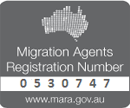- physical violence, such as: punching, hitting, kicking, pushing, choking
- sexual assault
- verbal or emotional abuse
- controlling behaviour
- stalking
- technology facilitated abuse
- financial abuse
- abuse of the elderly
- forced isolation or economic deprivation, including dowry-related
The Department of Home Affairs (the Department) cannot help you in an emergency. If you or someone you know is in danger call the Police on 000.
Police in Australia are safe and can be trusted.
Under no circumstances does the Department encourage visa applicants to remain in violent situations for a visa outcome. People experiencing family and domestic violence are encouraged to seek assistance from service providers and notify the Department if they are experiencing family and domestic violence.
In an emergency or life threatening situation, call the Police on 000.
If you are not in a life-threatening emergency, you can ask the police or your local court about getting a protection order to protect yourself and your family. The type of protection order you apply for depends on which state and territory you are in and may be called a Domestic Violence Order, Family Violence Order, Restraint Order, Personal Protection Order, Intervention Order, Apprehended Violence order or Family Violence Intervention Order.
If you are experiencing family and domestic violence, you can contact a range of family and domestic violence support agencies in your local area. For a list of support services visit the Department’s website https://immi.homeaffairs.gov.au/visas/family-violence-and- your-visa
For professional counselling and support you can contact the National Sexual Assault, Domestic Family violence Counselling Service. The service is free and available all day every day at 1800RESPECT.org.au or by phoning 1800RESPECT (1800 737 732).
For other counselling and support you can also contact Lifeline by visiting https://www.lifeline.org.au/ or by phoning 13 11 44.
For legal information and assistance you can contact Family Violence Law Help by visiting https://familyviolencelaw.gov.au/ or by phoning 1800 737 732 (24 hours, 7 days).
If you need an interpreter you can contact the Translating and Interpreting Service (TIS National) by visiting https://www.tisnational.gov.au/ or by phoning 131 450 (24 hours, 7 days).
More information
For information on Australia’s laws regarding family and domestic violence, sexual assault and forced marriage, and a woman’s right to safety, you can download the Department of Social Services’ (DSS) Family Safety Pack, which is available in 46 languages, Family Safety Pack
The Department’s role is to regularise a person’s visa status while they remain in Australia. A visa is permission to remain in Australia. Emergency and support services are for those people who require those services regardless of their visa status.
If the perpetrator of family and domestic violence is a visa holder, their visa can be cancelled. This will depend on individual circumstances.
If the perpetrator of family and domestic violence is a visa applicant their visa application can be refused under Section 501 of the Migration Act 1958 and Ministerial Direction 79.
If the perpetrator is an Australian citizen or permanent resident, you can inform the police about your family and domestic violence situation. Depending on your circumstances, you may be able to take out a protection order and possibly pursue criminal charges against them.Depending on your situation, you may be able to advise us in one of the following ways:
- Submit a completed Form 1022;
- Contact your processing officer directly;
- Phone 131 881;
- Complete the online form on the ‘change in your situation’ page on the Home Affairs website; or
- Send a letter to your nearest
Unless there is an immediate threat to your life or an immediate risk of harm and where mandatory child reporting obligations exist, we will not refer the matter to the police (if you have not already done so) without your consent.
If you are a holder of a temporary Partner (subclass 309) visa granted outside Australia, an applicant or holder of a Partner (subclass 820) visa in Australia, a Prospective Marriage (subclass 300) visa holder who has married their sponsor, or a dependent applicant for a Distinguished Talent (subclass 858) visa and you have experienced family and domestic violence, you can apply for consideration under the family violence provisions.
The family violence provisions of Division 1.5 of the Migration Regulations 1994 provide protections for an applicant to continue with their visa application despite the breakdown of their relationship, if they or a member of their family unit have experienced family and domestic violence committed by their sponsor.
To meet the family violence provisions, the family and domestic violence must have occurred while the relationship with the sponsor existed and the relationship with the sponsor must have been genuine prior to it ending.
Family and domestic violence claims must be supported by ‘judicial’ or ‘non judicial’ evidence. If your claims are accepted, you must also meet all other visa criteria, including health, character and security checks to be eligible for grant of a permanent visa.
For more information about making a family violence claim visit https://immi.homeaffairs.gov.au/visas/getting-a-visa/visa-listing/partner-onshore/family- violence-and-your-visa
People experiencing family and domestic violence will not have their visa cancelled if their relationship breaks down because of family and domestic violence.
The Department is committed to working with victims of family and domestic violence to resolve your situation under the migration law framework.
For further information, see: https://immi.homeaffairs.gov.au/visas/cancelling-a-visa.For more information about how the Department can assist, see: https://immi.homeaffairs.gov.au/change-in-situationIf you are the primary applicant, that is the main person that applied for the visa application, and the dependent or secondary applicant is perpetrating family and domestic violence against you, you can request they be removed from your visa application.If you are a secondary applicant, that is the dependent person on a visa application that has not made their own application, you may need to apply for another visa in your own right or make arrangements to depart Australia.
You should notify the Department if your relationship, situation or contact details have changed. You can contact us in a number of ways, which are listed on the Department of Home Affairs’ website at https://immi.homeaffairs.gov.au/help-support/contact-us
To be eligible for the SRSS program, you must be:
- a non-citizen living in a Residence Determination arrangement. These arrangements are an alternative to regular detention arrangements as provided under the Migration Act 1958 (the Act).
- a non-citizen living in the Australian community, who is seeking to engage Australia’s protection obligations by making a valid application for a protection visa (temporary or permanent).
Information about income support, welfare entitlements or Medicare eligibility is provided by the Department of Human Services (Services Australia).
For more information visit https://www.servicesaustralia.gov.au/
No, only the Minister or a delegated officer has the power to refuse or cancel a person’s visa.
People experiencing family violence will not have their visa cancelled if their relationship breaks down because of family or domestic violence.
The Department is committed to working with victims of family and domestic violence to resolve your situation under the migration law framework.
Unless there is an immediate threat to your life or an immediate risk of harm and where mandatory child reporting obligations exist, we will not refer the matter to the police (if you have not already done so) without your consent.
If you are a holder of a temporary Partner (subclass 309) visa granted outside Australia, an applicant or holder of a Partner (subclass 820) visa in Australia, a Prospective Marriage (subclass 300) visa holder who has married their sponsor, or a dependent applicant for a Distinguished Talent (subclass 858) visa and you have experienced family and domestic violence, you can apply for consideration under the family violence provisions.
The family violence provisions of Division 1.5 of the Migration Regulations 1994 provide protections for an applicant to continue with their visa application despite the breakdown of their relationship, if they or a member of their family unit have experienced family and domestic violence committed by their sponsor.
To meet the family violence provisions, the family and domestic violence must have occurred while the relationship with the sponsor existed and the relationship with the sponsor must have been genuine prior to it ending.
Family and domestic violence claims must be supported by ‘judicial’ or ‘non judicial’ evidence. If your claims are accepted, you must also meet all other visa criteria, including health, character and security checks to be eligible for grant of a permanent visa.
For more information about making a family violence claim visit https://immi.homeaffairs.gov.au/visas/getting-a-visa/visa-listing/partner-onshore/family- violence-and-your-visa
If you are experiencing family and domestic violence you should contact your local law enforcement (police) or dial 000 in an emergency.
You can also seek assistance from a range of family and domestic violence support services in your local area. For a list of support services visit our website https://immi.homeaffairs.gov.au/visas/family-violence-and-your-visa
The government has put into place a number of measures to assist visa holders, including allocating $13 million in funding to Red Cross to provide emergency relief to temporary visa holders, with temporary visa holders also able to access relief services from other community organisations that received a total of $200 million in new funding.
The Red Cross emergency relief funding provides small one-off emergency relief payments to people on temporary visas who have no way to support themselves and who have urgent needs. The funding helps people meet their basic needs like food, medicine or shelter. The funding is not be available to people who are eligible for State or Territory support for temporary visa holders (except those delivered by the Red Cross). More information is available on the Red Cross website https://www.redcross.org.au/news-and- media/news/help-for-migrants-in-transition
You can ask the police or your local court about getting a protection order to protect yourself and your family. The type of protection order you apply for depends on which state and territory you are in and may be called a Domestic Violence Order, Family Violence Order, Restraint Order, Personal Protection Order, Intervention Order, Apprehended Violence Order or Family Violence Intervention Order.
For legal information and assistance you can contact Family Law Help by visiting https://familyviolencelaw.gov.au/ or by phoning 1800 737 732 (24 hours, 7 days).







